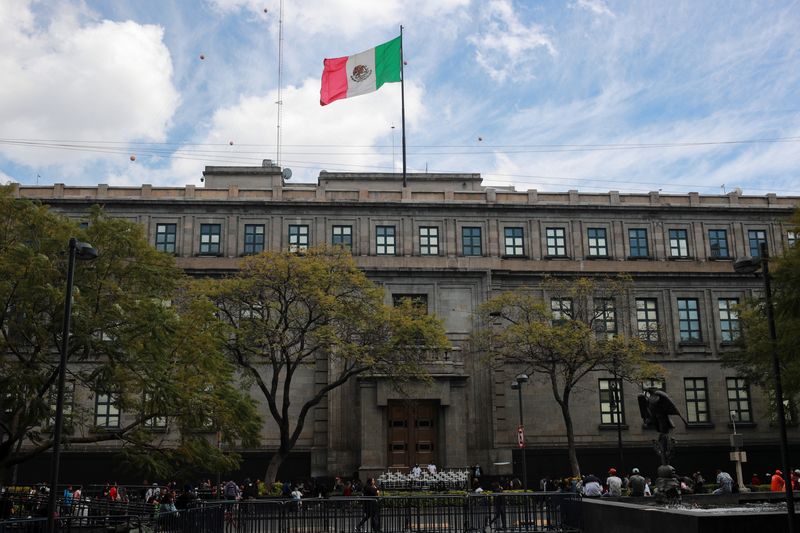Mexico’s Supreme Court upholds abortion rights nationwide, paving way for federal access
2023.09.06 18:19

© Reuters. FILE PHOTO: A general view of the Supreme Court building where Ministers elected a new President for the Supreme Court, in Mexico City, Mexico January 2, 2023.REUTERS/Henry Romero
By Gabriella Borter
MEXICO CITY (Reuters) – Mexico’s Supreme Court on Wednesday struck down a federal law criminalizing abortion, reaffirming an earlier ruling that criminal penalties for abortion were unconstitutional and allowing the federal healthcare system to provide services.
Mexico’s highest court, which consists of eleven justices, declared that criminal penalties for abortion were unconstitutional in 2021, but the ruling only applied to the northern state of Coahuila, where that case originated.
Since then, the country’s 32 states and the federal government have been slow to repeal their penal codes accordingly.
On Wednesday, the court sided with abortion rights groups in a challenge to the federal penal code and declared that the section of the national law that criminalized abortion could no longer take effect.
The ruling opens the door for the federal healthcare system to provide abortions, which could become increasingly important as Mexico mulls centralizing healthcare services, abortion rights advocates say.
The abortion rights legal advocacy group that brought the case celebrated the decision in a post on X, formerly known as Twitter.
“With this decision of the Supreme Court of Justice of the Nation, federal health institutions in the whole country will have to offer abortion services to women and people of gestational capacity who request it,” said the Information Group on Reproductive Choice known as GIRE in Spanish.
A representative for the National Secretary of Health, which oversees federal health services, did not immediately return a request for comment.
Aguascalientes became the twelfth Mexican state to decriminalize abortion last month when the Supreme Court sided with GIRE in a similar challenge to that state’s penal code.








